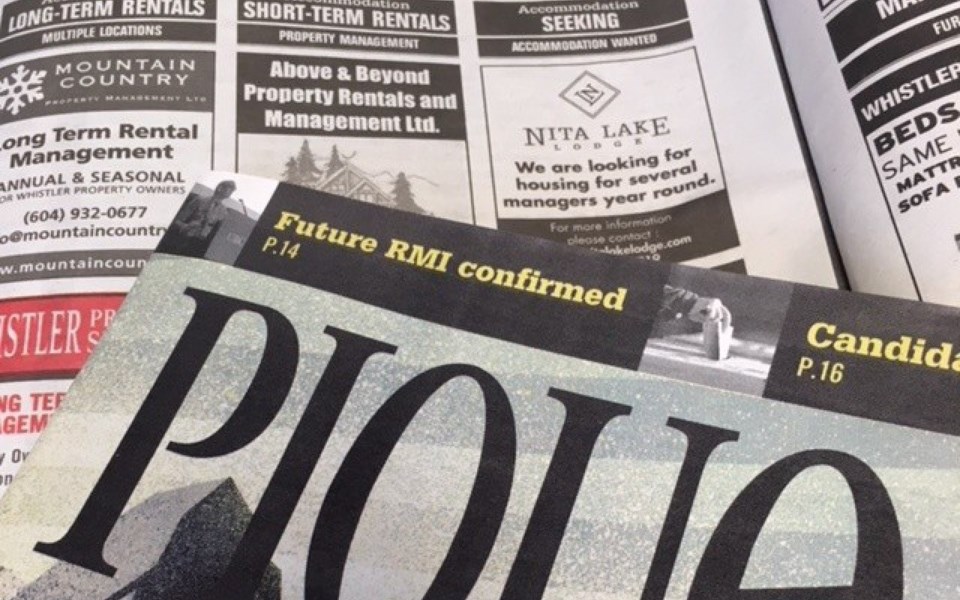A recent announcement from the province of B.C. will likely come as good news to Whistler renters, who pay well above the provincial average for their little slice of mountain paradise.
Last week, Minister of Municipal Affairs and Housing Selina Robinson said that the province would limit the annual allowable rent increase to the rate of inflation, which is set at 2.5 per cent for 2019.
The move was an early recommendation by the B.C. Rental Housing Task Force, which was appointed by Premier John Horgan in May and will be releasing further recommendations later this year.
Under the previous formula, set in 2004 by the BC Liberals, landlords would have been allowed to increase rent by two per cent plus inflation—that's 4.5 per cent in total.
As a result of the change, people living in a $1,200 per month apartment could save up to $288 in 2019 over what they could have paid under the old formula.
The change is opposed by landlord advocacy group Landlord B.C. and some landlords, who say that it makes it more difficult to invest back into their properties.
According to Jackie Dickinson—executive director of the Whistler Community Service Society (WCSS)—cutting the maximum allowable rental increase for renters is good policy, but addressing Whistler's housing crisis is going to involve some heavy lifting and a significant amount of new rental housing stock.
Dickinson noted that in Whistler, some people pay over $1,000 a month just to share a room. She is also concerned that things have grown so difficult in Whistler that renters don't feel "empowered" to stick up for their rights.
"We have people who are unable to advocate for their rights as tenants, because if they don't accept (the) agreement (the landlord) will just pass it off to someone who will," she said, from the new WCSS Nesters Road headquarters.
Under the Residential Tenancy Act, landlords can only increase the rent once every year, though some in Whistler are flouting that rule, charging different rates for summer and winter.
"This is where it starts to get complicated in Whistler," Dickinson said. "We are almost starting to see rules around housing that actually do not reflect the law."
Down in Vancouver, Andrew Sakamoto, a spokesperson for Tenant Resource and Advisory Centre (TRAC), said that he welcomes the change to the rent cap, but is hoping for more significant action.
TRAC submitted a number of recommendations to B.C.'s Rental Housing Task Force—which includes Spencer Chandra Herbert, MLA for Vancouver-West End, Adam Olsen, MLA for Saanich North and the Islands, and Ronna-Rae Leonard, MLA for Courtney-Comox—for consideration.
One such change is to improve legislation that concerns so-called "renovictions" and "demovictions."
In May, the province took a step in the right direction by instituting a right of first refusal for renters and increasing notice and dispute times, explained Sakamoto.
But the problem is that while a renter may now get the right of first refusal (a good thing), the landlord is free to up the rent as they see fit.
The right of refusal is going to be "very, very rarely used" in its current incarnation, he warned. TRAC is therefore recommending that a renter be able to move back into their home at the same rent, with landlords asked to apply to an arbitrator to increase rent.
"I think there is much more they can do in terms of changes to the (Residential Tenancy) Act and the Tenancy Branch," said Sakamoto. "And, of course, there is so much more they can do in terms of actually building affordable housing."




